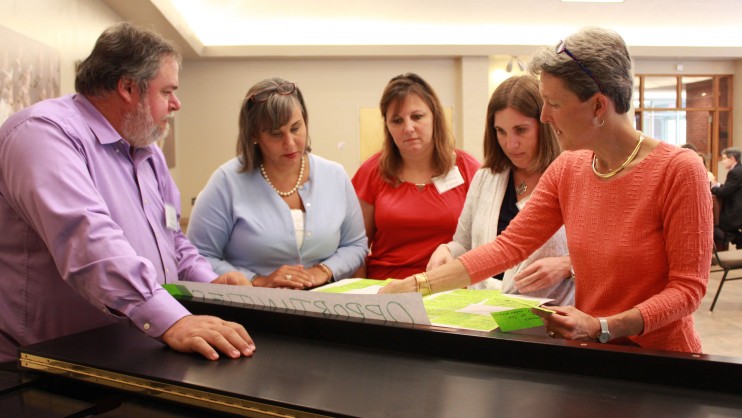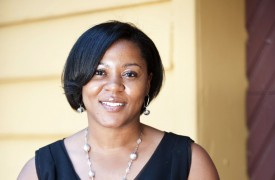
Over the past several years, the state of North Carolina has experienced significant changes to its economic landscape that have had profound impacts on the community economic development sector. More recently, shifts in state-level policies have created additional layers of complexity.
To better understand the challenges and opportunities within the sector, particularly in light of diminished nonprofit resources and compounding economic issues facing individuals and families across the state, the Z. Smith Reynolds Foundation recently concluded a series of listening sessions in four North Carolina communities. These sessions created a space for communities to engage with the Foundation, as well as other statewide and local funders, in a dialogue about some of the most vexing social and economic issues they are working through in their areas. It also gave participants the chance to build new relationships and helped solidify emerging partnerships that are moving towards more collaboration and a collective response to address increased community needs.
The Foundation co-hosted listening sessions in Henderson, Hickory, Rocky Mount, and Fayetteville in partnership with six philanthropic partners: Community Foundation of Henderson, Community Foundation of Western NC, Cumberland Community Foundation, Golden Leaf Foundation, Kate B. Reynolds Charitable Trust, and NC Community Foundation.
Several themes emerged as we reflected on these listening sessions. These included:
- The impact of severe budget cuts to several statewide institutions that have carried the weight of much of this sector for decades and the need to restructure their efforts in light of new realities;
- The tensions between addressing immediate needs and investing in long-term assets for families to fall back on during times like these; and
- The question of how to establish new, collaborative partnerships that can work together to influence systemic change in their respective communities.
The listening sessions sparked new conversations and associations between organizations and philanthropic partners that had not previously come together. They also generated an overall feeling of optimism and hope. Participants reported that they left these sessions equipped with a set of allies who are willing to work together on tough community issues and to support one another through hardships. This intentional space provided leaders and stakeholders with a platform to talk about difficult issues, which has helped inspire a sense of creativity and innovation that is needed to move a community toward solutions.
As the Foundation works to strengthen community economic development efforts by supporting strategies that are equitable, inclusive, and diverse, these listening sessions continue to provide valuable insights about how the Z. Smith Reynolds Foundation can extend its work beyond grantmaking and facilitate on-going dialogue focused on solutions to economic challenges – especially for women and people of color – across North Carolina.
